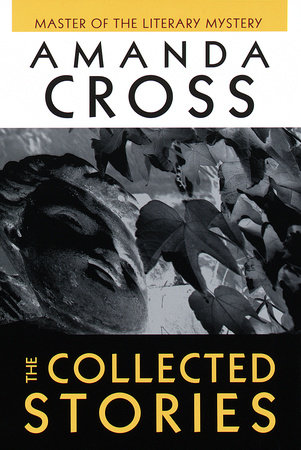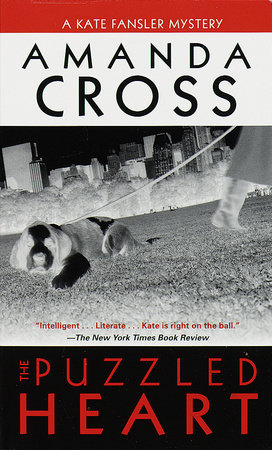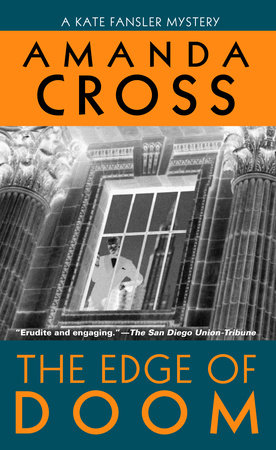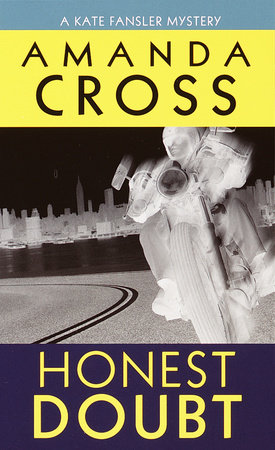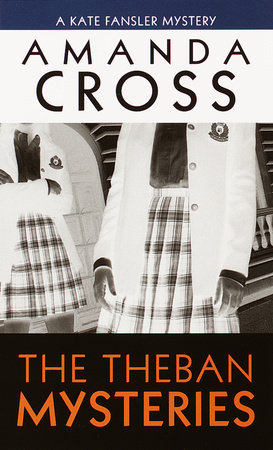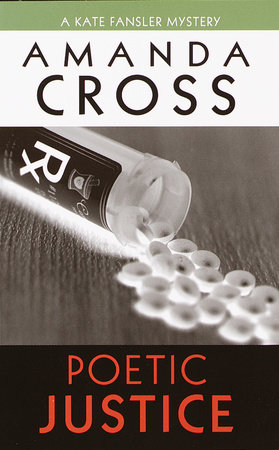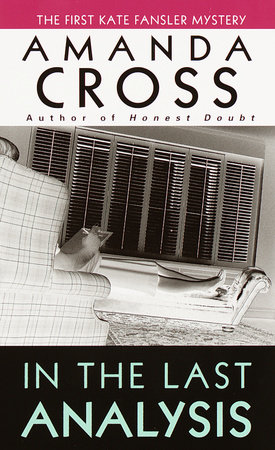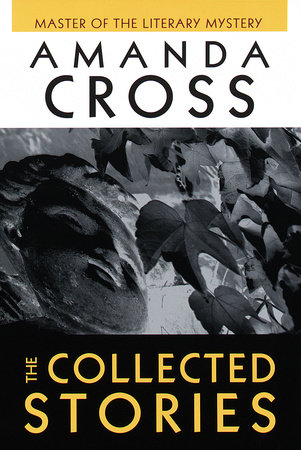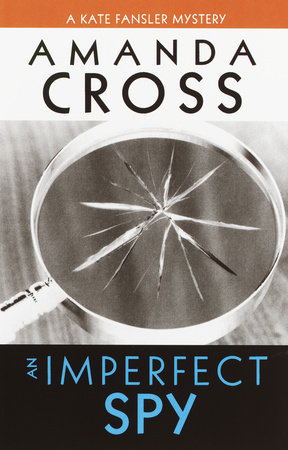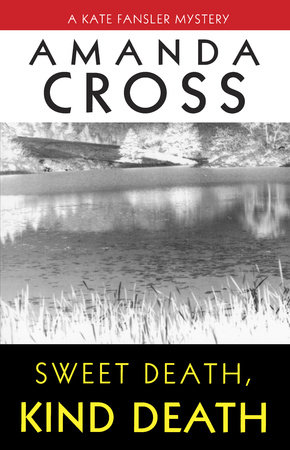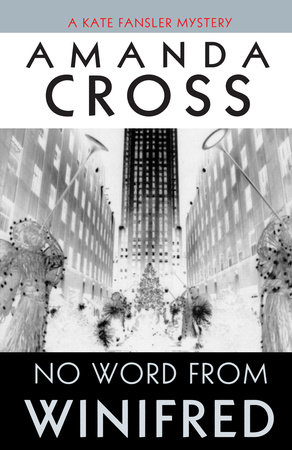Excerpt
The Collected Stories of Amanda Cross
INTRODUCTION
In 1987, I had faithfully promised the publisher of a Carolyn Heilbrun book that I would not work on another Kate Fansler novel until I had finished the nonfiction work then edging toward completion. The promise was made in all sincerity, but Kate Fansler, who rather resented being ignored for too long, was putting up a certain amount of fuss. I had not published a novel about her since 1986, and that one was written before 1985; she was growing restless. To those who have never created a series detective this may sound a bit mad; to those who have, however, it will hardly raise an eyebrow. Simenon reported how Maigret would intercept him if too long ignored; likewise Kate Fansler, who is inclined to hover when disregarded. Still, I had promised not to work on a novel.
It was then that the thought of a story about Kate Fansler came to me. I had, in fact, before the prohibition, been wondering intermittently if I might not use Fansler’s niece, Leighton Fansler (introduced in Death in a Tenured Position), as a sort of Watson–an idea that occurred to Leighton herself. And the next thing I knew, Leighton was reporting on Kate Fansler’s search for Tania. Once started, I wrote two more stories in this mode after “Tania’s Nowhere”: “Once Upon a Time” and “Arrie and Jasper,” and all were sold to Ellery Queen’s Mystery Magazine. By this time my Carolyn Heilbrun manuscript–it was Writing a Woman’s Life–had been completed and I was again able to contemplate my detective in a book-length adventure.
The next four stories and the last story, “The Baroness,” were each written in later years at the request of someone who was editing an anthology. In only one of them, “The Disappearance of Great Aunt Flavia,” does Leighton Fansler serve as narrator. “The George Eliot Play” is, however, the only story included here that has not previously been published; it was written especially for this collection and is entirely accurate in all its George Eliot facts.
The last story in this collection, “The Baroness,” is not a Kate Fansler story. This in no way indicates an intention to desert her or, worse, to allow her to desert me. It happened that at the moment when Sara Paretsky asked for a story to go into her second collection of the adventures of women private eyes and amateur detectives, I was intrigued with the idea of the relationship between two Englishwomen who had been friends from girlhood, but one of whom had moved, upon marriage, to America. I therefore used the American friend as the narrator in the only first-person story or novel I have ever written.
I am not a particular devotee of the detective short story, much preferring novel-length mysteries. I have noticed that I tend to read stories when an author’s longer works have captured my attention, when I find I like a certain author’s style of writing, and, most compellingly, when my interest in her or his detective urges me to search out more adventures in that fictional life. Thus, for example, I have read Dorothy Sayers’s short stories about Peter Wimsey, and even those about her wine salesman, Montague Egg, but her stories without either detective appeal less to me. I mention this predilection of mine to explain why I thought these stories might be of interest to some readers who had found themselves attracted to Kate Fansler and the life she leads and has led.
Something else about them occurred to me as I read over these stories. They suggest that Kate has dabbled–a verb she would resent–in more cases than the novels comprehend. In all of them, however, she is absolutely the amateur, not only without pay and without any of the clout of a professional detective, but also involved only in cases where her sympathies, her knowledge of literature and the academic world, and her sense of rightness are caught. In each case, it is highly unlikely that anyone else would have been in a position to work on the puzzles, or to have been called upon by those in need of Kate’s ministrations. She is, in each case, the only one who could, without question, understand what the “fuss” was all about. This is also true, of course, of the American woman in the “The Baroness.”
I have always been unsettled by the television stories about Jessica Fletcher, played by Angela Lansbury. The character and the actress are both appealing, but the fact that everywhere Fletcher goes someone is brutally murdered does give one pause–at least it does me. Private eyes, policepersons, and other detectives are called upon when their singular talents are needed. Jessica Fletcher, on the contrary, seems not only to invite the murders she solves, but to engage with murders in unimaginably different settings. Why anyone ever allows her to visit is the deepest mystery of all.
Although Kate Fansler, like Jessica Fletcher, is an amateur, helping those who know her and who realize that her special talents and training can serve them, she does not live amid multiple murders. Indeed, she has been criticized, not always kindly, for not tripping over enough bodies. There are fewer bodies than there are novels, if truth be told.
In only two of these stories is there a body: I am more interested in what I guess can be defined and condemned as intellectual mysteries, that is, stories where one mind must outwit or outguess another. There is a chance for the reader, like Kate, if not to unravel one of life’s minor mysteries, at least to recognize the rich variety of human motives. Neither Kate nor I believe that any human condition, individual or collective, is rectified easily or by drastic action. Revolution, revenge, and self-protectiveness almost always outrun the intentions of their instigators. Kate Fansler’s way is to aid justice where she can, and if she is involved in the punishment of a criminal, it is only because he has been tempted to betray himself. When Kate is finished with a case, a small degree of order has been restored, a few people are happier, or at least more knowledgeable, but no institution has been profoundly changed.
Kate has never fired a gun or been beaten up in the course of her work, although, like any city dweller, she might be shot or beaten up in the streets any day now. Within the narratives that compose her life, she likes conversation, courtesy, and knowledge. She is drawn to those for whom hatred or reform of others is not a goal. Mysteries intrigue her, arrogance depresses her, and she enjoys a drink rather oftener than a doctor might recommend. She is given to occasional bouts of acedia, a sin not encountered in the Ten Commandments; the purpose of life now and then evades her grasp. She finds some men more attractive than is altogether comfortable in the light of her happy marriage.
As her creator, I cannot claim to be like Kate in any particular respect, but she does represent a commitment to truth and friendship–and a kind of crazy courage–that I admire but can only aspire to. She is richer than I am, thinner, braver, and a more devoted drinker. As with all fictional detectives, she represents a fantasy, but, I hope, not a malignant or violent one. My major wish for her is that some people might enjoy her company and seek it out.
–AMANDA CROSS


